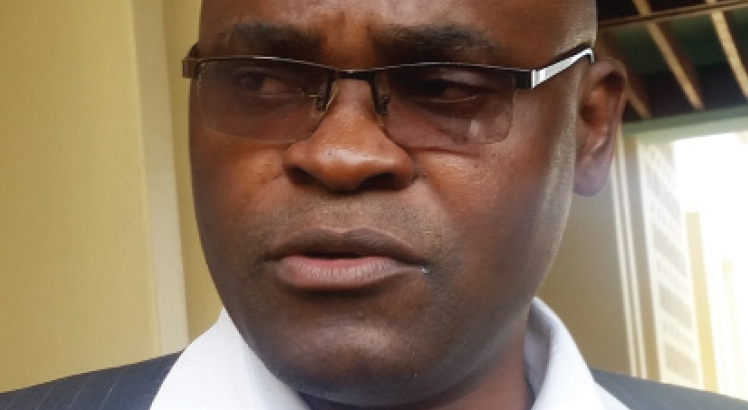In 2013, Malawi enacted the Public Officers (Declaration of Assets, Liabilities and business Interests) Act to make provision for the declaration of assets, liabilities and business interests by senior public officers. The idea was to check abuse of office by the officers. However, eight years down the line the Act remains a white elephant as no single lawbreaker has been punished for breach violating the Act. Our News Analyst LUCKY MKANDAWIRE talks to MOSES MKANDAWIRE, chairperson of the National Anti-Corruption Alliance (Naca), on this.
Mkandawire: The law aims at preventing illicit enrichment for public officers
Q1
. Why is the Public Officers (Declaration of Assets, Liabilities and business Interests) Act important to the country?
A1
. The law aims at preventing illicit enrichment for public officers as it provides a benchmark against which future disclosures could be compared. This would be helpful in determining the type and nature of the wealth one might have accumulated within the prescribed period of time and check as to whether or not it could be attributed to the gifts, loans and household incomes that were obtained genuinely or illegally particularly at a time when he or she was or had ascended into the position of public authority.
Q2
. To date, statistics show no single public officer has been brought to book for breaking this law, what do you think is the problem?
A2
. The law was premised on the fact that it would enhance periodic disclosures of the assets and liabilities under discussion by public officers as well as enhance public confidence and trust, especially when one is expected to live within his or her means and above all protect his or her reputation as a public figure. Unfortunately, for the majority of our leaders that has not been the case.
Q3
. Why are our leaders, including some legislators who passed the law, failing to comply with its provisions?
A3
. There is a litany of factors to that. The law has on several occasions lacked the much-needed political will. Quite often political leaders are good when they are in opposition and they will always talk as if they are terribly concerned with the prevailing situation. But they become worse when they cross River Rubicon. Secondly, majority of people who have decided to go into public positions have decided to be involved in “political entrepreneurship” through looting public coffers at the expense of a common person. This is done at any given cost and there is no way they can support the law. The law itself also lacks critical points of clarity in terms of prescribing the type and nature of the assets and liabilities, including the interest public officers ought to disclose. There has been a major discourse around that the law does not define the penalties or sanctions against somebody who has either delayed to disclose or has not disclosed or has under-declared. This has been a major discussion point which other sources claim provides a weakness to the declaration of asset regime. For instance, the President is free to make his/her declaration and yet nobody is allowed to see the content of the declaration. This, of course, challenges the Access to Information Law and, instead, promotes secrecy.
Q4
. Why do you think this promotion of secrecy framework especially on the part of the President is bad?
A4
. That is bad because it affects the transparency and accountability mechanisms that democracy propagates. Elsewhere, limited resources have been cited as a bottleneck to the overall framework of assets declaration regime.
Q5
. Some quarters have pushed the blame to the country’s CSOs?
A5
. That is correct. The weakness of the CSO leadership, including some media organisations and the opposition party leaders has contributed to this. There are some of us that have embraced fraud, embezzlement and swindling of public resources as a normal system. We do not care how pervasive this corruption has been and we cannot be vocal when we see others enriching themselves and failing to declare their sources of wealth since we seem to be key beneficiaries of the system.
Q6
. So, what needs to do done?
A6
. There is need to put in place some strategies such as capacity-building among different stakeholders, including CSOs, the media and public officials. The declaration of assets should also be published through gazettes for the common person to see or read. There is also need for legal reform to ensure that the law is tight enough and can bite in so far as serving the interest of the majority of Malawians is concerned other than the privileged few. The declaration should as well be made public through for everybody to see, analyse and question for clarification, if need be. Any public official must be open to public scrutiny given the nature of their job functionality. There is also need for provision of necessary support in terms of financing the body that coordinates the declaration of assets. Strong collaboration, coordination and networking is also critical among relevant government institutions such as the Anti-Corruption Bureau and Financial Intelligence Authority, among others. This will help in that where suspicion crops up other institutions can as well come in to accomplish the work. Finally, simplification of the systems like reporting mechanisms could largely help both in the short and long-term strategies and the monitoring compliance of the system and practice is also fundamental as its failure will always produce negative results and create lack of sustained trust and confidence in the system. n
The post Anti-corruption alliance on assets declaration appeared first on The Nation Online.
 Moni Malawi
Moni Malawi 
